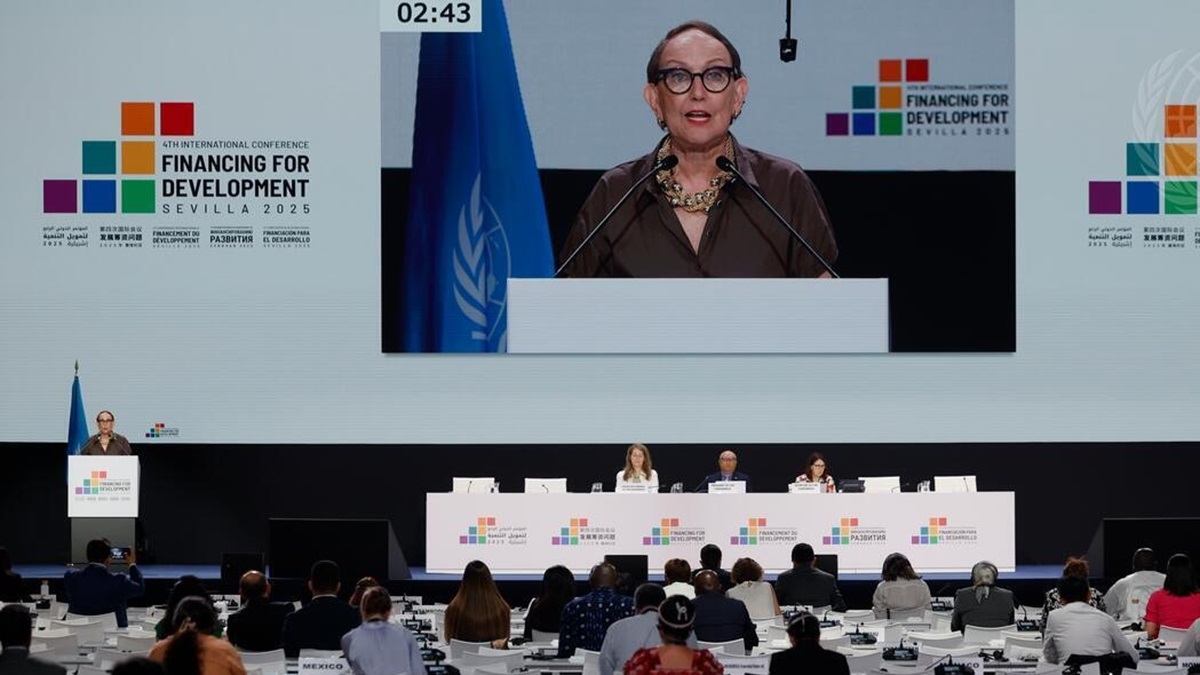
By Jeff Kapembwa
The severity of climate change on the planet needs joint global action to minimize its impact but the fight needs global collaboration to attain sustainable development and reforming the international financial architecture, campaigners have agreed in unison.
The Fourth International Conference on Financing for Development (FFD4), hosted by Seville and closed on 3 July, while appreciating the gravity of the climate change, seeks co-existence, financing institutions, included to fight jointly to minimise effects.
Spain sought various set parameters to reverse, or at least minimize the climate crisis jointly by all interest groups with proposals to maximize opportunities to raise resources through debt swaps, debt relief, and climate-resilient debt clauses.
Campaigners, after deliberations, sought to fight the recurring climate change crisis through the “Sevilla Platform for Action” platform, seeking to address climate change within the broader context of debt and development.
The Fourth International Conference on Financing for Development (FFD4), held in Seville, Spain, addressed climate change within the broader context of debt and development.
It recognized climate change as a critical challenge and aimed to mobilize finance for sustainable development while reforming the international financial architecture.
The conference saw the launch of the “Sevilla Platform for Action” and initiatives focused on debt swaps, debt relief, and climate-resilient debt clauses.
The FFD4, in its resolve, sought to mobilise both public and private investment for sustainable development, and emphasized the importance of strengthening tax systems and domestic resource mobilization.
There is a need to explore innovative financial instruments and mechanisms to unlock alternative funding sources for climate action and sustainable development and focus on leveraging debt restructuring and scaling up blended finance.
A statement availed agreed uniformly, to reform the International Financial Architecture: reform the international financial architecture to make it more inclusive and accountable.
There is an urgent need to address issues of debt sustainability, access to finance, and the role of private capital in development and create a more equitable global financial system that supports sustainable development goals.
The campaigners will strive to focus on Data and Transparency as a “Compromiso de Sevilla”, with emphasis on the need high-quality, disaggregated as a way of fostering the global fight being waged in addressing climate change in relation to debt and development:
Climate Change as a Central Issue:
The FFD4 is mindful of the effect of the climatic changes arising from various factors and reasons, including human induced activities that are heightening the release of GreenHouse Gases (GHGs).
The emissions severely, afflicting the world and chiefly exploited uncouthly by Jana, United States, India, among others, while exposing Least Developing Countries, despite their low emissions to the atmosphere that has affected sustainable development.
The campaigners, in their lobby for redress, explicitly recognized climate change as a major obstacle to sustainable development and a key factor influencing debt sustainability.
The need to align financial flows with climate objectives, including through multilateral development banks.
According to the “Compromiso de Sevilla,” the conference’s outcome document, advocates for change, reaffirmed the commitment to mobilizing USD 100 billion annually for climate action.
There is dire need to increase adaptation funding, particularly for Least Developed Countries (LDCs) and Small Island Developing States (SIDS).
Debt Relief and Climate Resilience:
The conference extended its efforts further by launching initiatives to address unsustainable debt burdens and enhance crisis response, including debt swaps and debt relief programs.
A Debt Swaps for Development Hub was established to strengthen capacity and enhance collaboration on debt swaps and reduce debt service burdens.
Italy launched a Debt-for-Development Swap Programme to convert African countries’ debt obligations into development investments.
A Debt “Pause Clause” Alliance was created, where participating countries and MDBs committed to including “pause clauses” in their lending agreements, allowing for suspension of debt service payments during crises.
The conference also promoted climate-resilient debt clauses, was promoted and would be used to suspend debt payments during climate-related crises. It will be mobilizing Finance for Sustainable Development:
The FFD4 aimed to mobilize both public and private investment for sustainable development.
There is an urgent need to strengthen tax systems and domestic resource mobilization.
Countries should further have explored innovative financial instruments and mechanisms to unlock alternative funding sources for climate action and sustainable development, according to resolutions.
There is an urgent need to leverage debt restructuring and scaling up blended finance with a call for reforming the International Financial Architecture:
The FFD4 too, sought to reform the international financial architecture to make it more inclusive and accountable.
It also supports calls in the Sevilla Commitment to triple the lending capacity of multilateral development banks – from $50 billion to $150 billion – and help developing countries boost investment.
There is an unwavering call for redressing debt sustainability, access to finance, and the role of private capital in development.
Creating a more equitable global financial system that supports sustainable development goals with a focus on data and Transparency, all remain vital, reads part of the “Compromiso de Sevilla” blueprint.
The blueprint stressed the vital role seeking the multilateral development banks (MDBs) and public development banks (PDBs) to join hands in addressing the SDG financing gap – calling notably for MDB’s tripling of their annual lending capacity.
Issues relating to “working better as a system” – horizontally and vertically with national development banks -, mobilising additional public and private capital through innovative financial instruments.
Providing affordable, long-term and, where relevant, local currency financing, responding and contributing to country-led and country owned processes, and better accounting for debt and local fiscal constraints as well as multi-dimensional vulnerability were listed amongst the key priorities listed.
